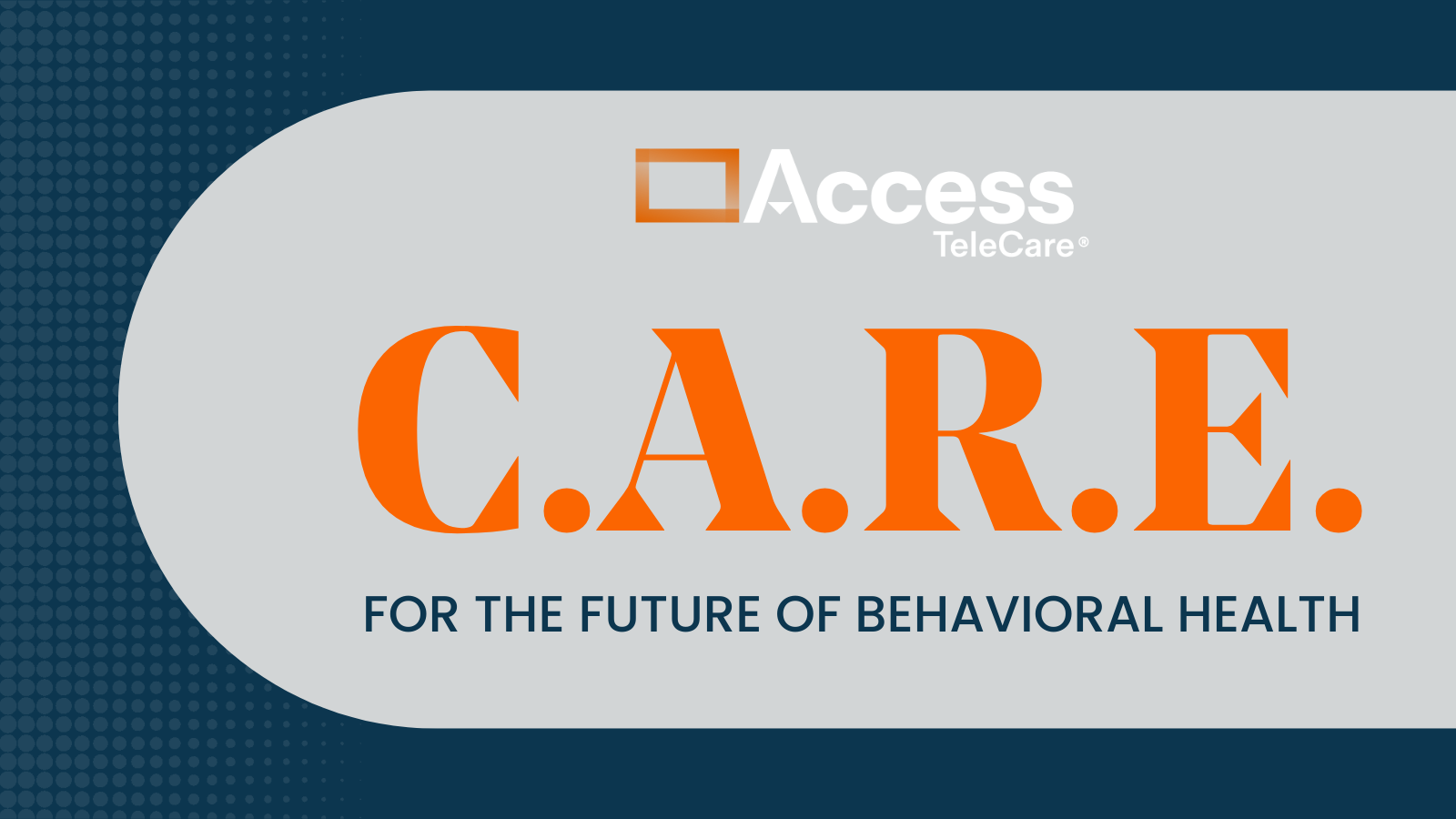In 2016, two researchers embarked on a systematic—one might say, extremely comprehensive—review of terminology to describe telemedicine for mental health in the U.S. They searched mental health licensure websites in all 50 states, reviewed related laws, statutes, rules, policies, and newsletters, and in general scoured the Internet for official usage. They even called and sent emails to licensure board personnel in 40 states to confirm what they found and uncover additional policies which weren’t online.
Altogether, the two researchers, Jay Ostrowski and Traci P. Collins, discovered 42 different terms used to refer to teleMental Health services in some form or another. From that initial list, they narrowed it down to 19 “unique terms” used across 65 different state licensure boards, from teleTherapy to electronic-assisted counseling. We’ll spare you the whole list, but their conclusion, in so many words, is that the terminology describing telemedicine for mental health is pretty much the Wild West.
That shouldn’t surprise anybody. As with any relatively new industry, terminology is adapted and evolves from previous broadly known and understood language. Thus we stick “tele-” in front of a lot of medical specialties (teleNeurology, telePsychiatry, and many more), even though we don’t always mean picking up the telephone. Tele has become a stand-in for nearly any remote, distanced, or electronic means of communicating with patients for treatment.
But wait: isn’t 2021 supposed to be the year telemedicine loses the “tele,” as Access TeleCare’s Chief Medical Officer Dr. Jason Hallock predicted earlier this year? And why does the terminology matter in the first place?
Why telemedicine terminology matters
Hallock wrote that consumers increasingly think of their healthcare as an integrated system, just like we don’t consider it “telebanking” if we happen to deposit a check with our smartphone. “But here’s the caveat,” he continued, “The industry itself will still think of itself as the telemedicine industry.”
That’s true not just because investors want to invest in telemedicine but also because of the thicket of licensing and federal regulation that generally governs the healthcare industry. As Ostrowski and Collins wrote, different terminology creates confusion for the mental health professionals tasked with delivering care, getting paid for that care, and ensuring that they follow relevant state and federal regulations.
One state may regulate online therapy, which suggests any therapy delivered over the Internet, while another may define teleMental Health as any care provided via electronic means. Ostrowski and Collins didn’t even include the telePsychiatry sector in their report, which focused on clinical and mental health counseling not delivered by an MD.
Knowing the terms is important not just for clinicians who seek to grow or improve their practices but also for the patients they treat, as well as for researchers, analysts, and educators. The terms also matter for what you’re trying to communicate. The difference between a “mental health” and a “behavioral health” program isn’t just semantics: it suggests essential distinctions between what kinds of patients are being seen and what conditions they may have.
We can’t cover all the possible iterations of telemedicine for mental health, so we will define four main terms, starting with the difference between teleMental Health and teleBehavioral Health.
teleMental Health vs. teleBehavioral Health
Broadly speaking, mental health refers to anything biological-, psychological-, or behavior-related which could impact your mental health and well-being. Mental health is the catch-all term into which everything else falls.
The World Health Organization defines mental health as “a state of well-being in which an individual realizes his or her own abilities, can cope with the normal stresses of life, can work productively and is able to make a contribution to his or her community.”
Thus, teleMental Health is the general category for virtual, online, or remote mental health care. Though the meaning of these terms is in flux, currently they can best be understood with this diagram:

TeleBehavioral Health is a subset of teleMental Health. Behavioral health refers to more habit-related factors rather than psychological or biological, though of course, from a clinical standpoint, it’s never quite as clear-cut. Labeling some conditions as “behavioral” may unfairly “place the onus on the individual to change,” wrote Elana Premack Sandler in an article for Psychology Today, when in fact, a range of environmental or psychological factors contributes.
Issues such as substance abuse, drug addiction, or eating disorders are often categorized as behavioral health. In contrast, conditions like depression, schizophrenia, or bipolar disorder are generally considered mental health concerns.
In our glossary of telemedicine terms, we define teleMental Health as including both mental and behavioral health concerns:
TeleMental Health, also known as telePsychiatry or teleBehavioral Health, is virtual care for mental health and substance abuse patients.
Definition of TelePsychiatry
TelePsychiatry is probably the easiest term to define: telePsychiatry is teleMental Health care provided by a psychiatrist, often in a crisis situation. TelePsychiatry is usually provided in a clinical setting since psychiatrists are MDs.
SOC is the largest telePsychiatry provider in the country, contracting with hospitals, health systems, and physician groups to support care teams in hospitals throughout the country. From our glossary:
TelePsychiatry is the diagnosis and treatment of mental health patients by a remote clinician, such as a psychiatrist, using telecommunications technology like videoconferencing. It makes it possible for a psychiatrist and patient to be in separate rooms, cities, states, or even countries and still be connected face-to-face.
Definition of TeleTherapy
Finally, teleTherapy is best defined as teleMental Health care not delivered by an MD but more likely provided by a mental health counselor, psychologist, or another licensed medical professional who is not a psychiatrist. This group could include marriage and family counselors, therapists, social workers, or other kinds of mental health coaches.
***
For more definitions, head over to Access TeleCare’s telemedicine glossary, where we’ve offered explanations for more than 50 terms commonly used in healthcare telemedicine.









